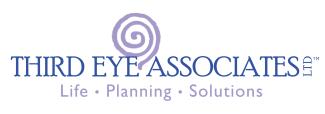Estate Planning — Avoid Conflicts that Can Arise with Your Illness or Death
September 21, 2013
By Beth Jones, RLP®, AIF®, CFT™
Many people fail to have proper and updated estate planning documents, so a serious illness or death of a family member can create major ramifications at a difficult time. Some think that only wealthy people need estate planning documents not true. Below is a summary of the documents that can help to ensure that your desires are clear and legal, hence minimizing conflicts and confusion.
The Advanced Health Care Directive lists your healthcare preferences. It is used only when you cannot communicate your wishes. It puts your family, doctors, and hospitals on notice as to the types of treatments, tests and care you would or would not want. The proper format of the advanced healthcare directive varies from state to state, so be sure to consult an estate planning attorney so that your wishes will be followed.
Durable Power of Attorney appoints those who you trust to handle your affairs if you are unable to do so. The form also lists the areas in which you are allowing the individual to assist you. This form can help avoid conservatorship if you become incapacitated. Work with an attorney to make sure you are using the proper form for your situation.
HIPAA Release Form (named for the Health Information Portability and Accountability Act of 1996) allows individuals named in your Advanced Health Care Directive and/or Power of Attorney to have access to your healthcare information when you are incapacitated.
A Will is the most common document for indicating how you want your assets to be distributed when you die and is subject to probate. When someone dies without a will, state law governs how the estate is administered. This may be especially troublesome if you have estranged relatives. People who have significant levels of assets are usually better served by having a Living Trust. However, even if you have a Living Trust, you still need a will.
A Living Trust is the preferred method for many people for transferring assets upon death. Trusts will enable the heirs to avoid a “probated will.” The result usually is that assets can be transferred on a more confidential basis, with less cost and faster distribution, and with more flexibility in terms of timing and tax impacts. Trusts are less likely to be contested than wills under probate. For those with substantial wealth, the trust might provide estate tax benefits, too. The downside of a trust is that it is usually more expensive to create and maintain. Make sure the trust is properly funded. Real estate, savings accounts, mutual funds, and other investments should be transferred to the trust. Assigning your personal property to the trust and having proper documentation will allow the trustee to distribute your personal property to those that you list. Retirement accounts can not be transferred to a Trust and should have named beneficiaries for best tax options.
Probate is a process by which a Will of a deceased person is proved to be valid, such that their property can in due course be re-titled or transferred to beneficiaries of the will. As with any legal proceeding, there are technical aspects to probate administration:
- Creditors need to be notified and legal notices published.
- Executors of the Will need to have legal guidance to distribute assets and take creditors’ rights into account.
- A Petition to appoint a personal representative may need to be filed and Letters of Administration obtained.
- In many common law jurisdictions property held as joint tenants with rights of survivorship will pass automatically to the surviving joint owner separately from any will, unless the equitable title is held as tenants in common.
- There may be a lawsuit pending over the decedent’s death or there may have been pending suits that are now continuing. There may be separate procedures required in contentious probate cases.
- Real estate or other property may need to be sold to effect distribution of assets pursuant to the Will or to pay debts.
- Estate taxes, gift taxes or inheritance taxes must be considered if the estate exceeds certain thresholds, currently five million dollars for federal estate tax.
- Costs of the administration including ordinary taxation such as income tax on interest and property taxation will be deducted from assets in the estate before distribution by the executors of the will.
Be Cautious
Do not rely on documents you download from the internet because they might not be legally binding in the state where you live, or they might be legally defective in some other way. Some financial salespeople may claim that purchasing a financial product is the equivalent of estate planning. Don’t believe them. While life insurance or specific investments may be part of an estate plan, they are not substitutes for having all of the necessary documents.
Make sure you have complete and updated estate planning documents. Avoid the issues that can be caused by lack of planning. Always consult an attorney who specializes in estate planning to make sure you have the correct documents for your personal situation.
Third Eye Associates, Ltd disclaimer
This article is provided for general informational purposes only and should not be construed as investment advice. Always consult a qualified Financial Consultant or Planner who can guide you in creating a globally diversified portfolio that provides growth and income with an eye on managing volatility.
Beth Jones, RLP®, AIF®, CFT™ is a Certified Financial Transitionist™, Registered Life Planner, and Financial Consultant with Third Eye Associates, Ltd, a fee-only Registered Investment Adviser located at 38 Spring Lake Road in Red Hook, NY. She can be reached at 845-752-2216 or www.thirdeyeassociates.com.

